“Everybody Wants To Be Credited With Breaking The News”
- Par Kimeng Hilton
- 12 nov. 2019 15:49
- 0 Likes
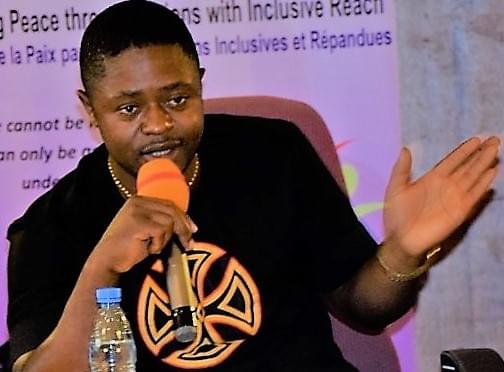
Journalism in Cameroon is receiving one of its greatest bashings in recent years. Understandably, the image of the profession and its practitioners have been dealt a heavy blow. Mention fake news and hate speech and the average person will be quite familiar with at least one of them. Because they have either been victim or have heard the word mentioned so often of late.
Unfortunately, the phenomena have virtually become part and parcel of our daily lives. What accounts for this state of affairs? And what can be done about it? Dr Bernard Sakah of the Pan-African University, Yaounde, recently facilitated a workshop in Yaounde for journalists on “Media, Peace and Elections.” He also defended a PhD recently on social media use. In the following interview, Dr Sakah discusses the damaging impact of fake news and hate speech and suggests ways and means of mitigating them.
How serious is the problem of fake news and hate speech in the Cameroon media?
The increasing perpetration of fake news and hate speech across the media landscape in Cameroon is becoming more preoccupying everyday to different stakeholders. The government, media practitioners, politicians, civil society activists, among other categories of persons in Cameroon, have continued to express deep concerns vis-à-vis these phenomena which have gained more grounds through traditional and social media spaces.
Not only have there been unending debates in Cameroon and the Diaspora over their origins and consequences, but there has equally been visible translation of hate messages and fake news into further divisions of Cameroonians. This is along tribal, social, cultural, economic and political lines. Without pointing any accusing fingers, it is evident that such visible manifestations of hatred and fake information dissemination urgently need to be tackled from their sources to avoid more devastating consequences.
What explains this situation (the origin/causes)?
There are quite a plethora of causes and origins of hate speech and fake news in Cameroon. Among the most recent is the ensuing violent conflict in the North West and South West Regions of Cameroon since 2016; the political environment before, during and after the October 2018 presidential elections and the series of socio-economic frustrations plaguing Cameroonians from all walks of life.
In fact, the high rate of unemployment among young and qualified Cameroonians; persistent feeling of political exclusion, if not marginalisation of Cameroonians from certain geopolitical origins; social injustice; concentration of wealth in the hands few privileged individuals and families in the country; poverty; corruption and poor governance; largely account for the prevailing cankerworm.
It is equally worth stressing that media illiteracy, ignorance of existing media-related norms and standards, advent of social media and increasing citizen journalism, the precarious income situation and living conditions of media practitioners who are ready to compromise professional standards to earn a living, further exacerbates the situation. Meanwhile, the historical, cultural, social, economic and political evolution of Cameroon cannot be ignored when seeking solutions to the dangerous seeds of hate speech and fake news.
Who then is to blame for the proliferation of fake news and hate speech in Cameroon?
I think every Cameroonian today must be honest to acknowledge that we all have contributed in one way or the other in perpetrating fake news and hate speech. Consequently, we must equally assume the collective responsibility to counter such divisive and evil forces irrespective of our social status in order to urgently restore a more convivial spirit for social cohesion, social justice, and sustainable peace in Cameroon.
What is the impact of the phenomena on journalism and the society as a whole?
Fake news and hate speech have drastically transformed the media landscape in particular and the Cameroonian society in general. For instance, the masses have increasingly become sceptical of journalism in Cameroon based on unprofessional and fake content disseminated through certain TV, radio stations, newspapers and online platforms (blogs). This has equally boosted the emergence/prevalence of citizen journalists, independent bloggers and freelance journalists, many of whom rarely seek to comply with most journalism standards, including ethics and deontology.
Everybody wants to be credited with “Breaking The News,” irrespective of whether they are professional journalists or not; thus there is growing scepticism towards many journalists. In fact, it has become more difficult to distinguish between objective, factual and ethical reporting by trained and untrained (citizen) journalists in Cameroon who are not only visibly biased, but more evidently find it challenging to separate their personal stance from news stories.
Consequently, some journalists and media outlets are known for being used or instrumentalized by selfish politicians to pursue their individual agendas at the peril of peace, social cohesion, national integration and prosperity of the country.
What can be done and by who, to mitigate or eradicate the problem?
Cet article complet est réservé aux abonnés
Déjà abonné ? Identifiez-vous >
Accédez en illimité à Cameroon Tribune Digital à partir de 26250 FCFA
Je M'abonne1 minute suffit pour vous abonner à Cameroon Tribune Digital !
- Votre numéro spécial cameroon-tribune en version numérique
- Des encarts
- Des appels d'offres exclusives
- D'avant-première (accès 24h avant la publication)
- Des éditions consultables sur tous supports (smartphone, tablettes, PC)






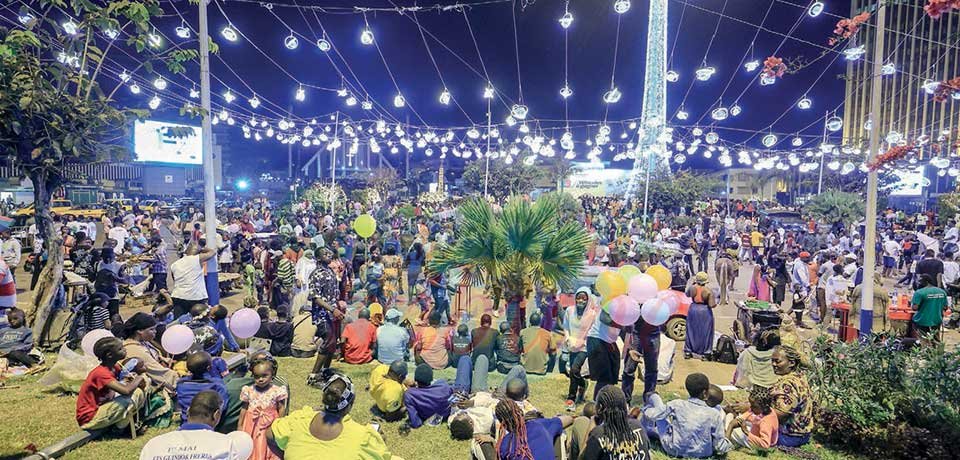
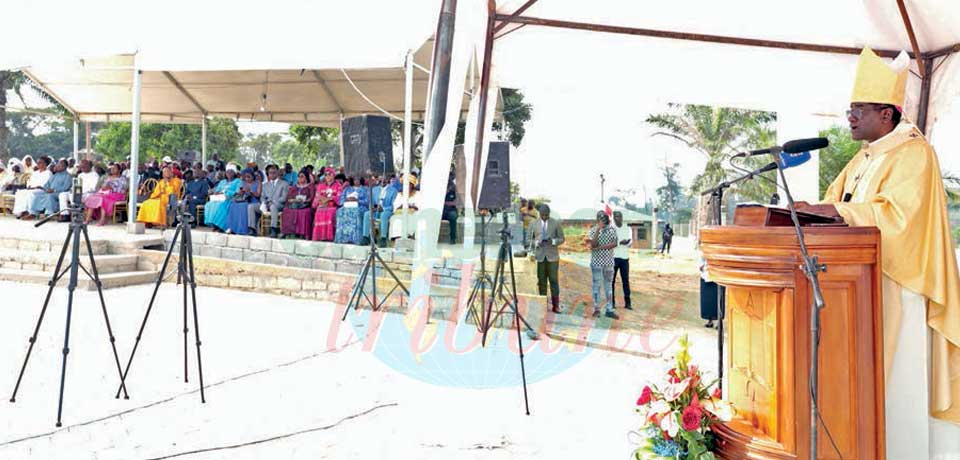
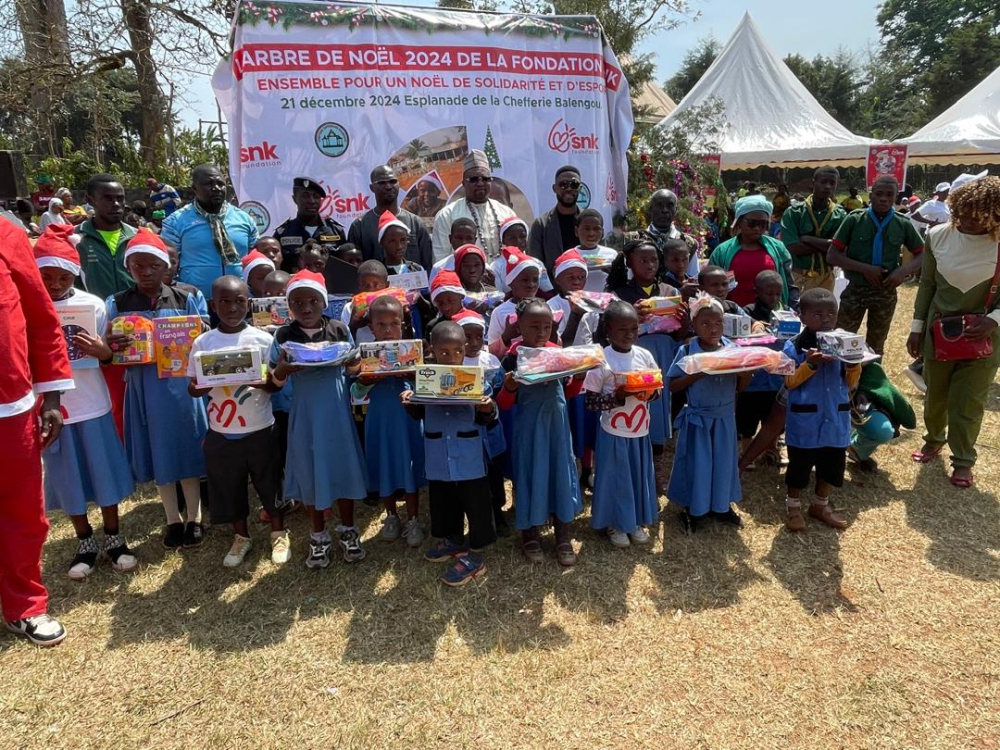
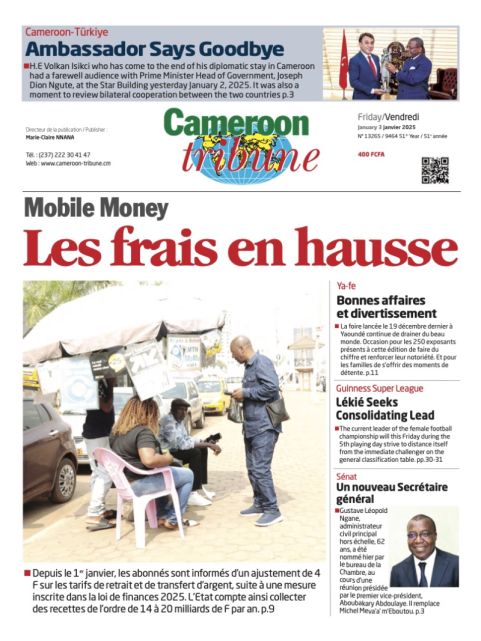




Commentaires